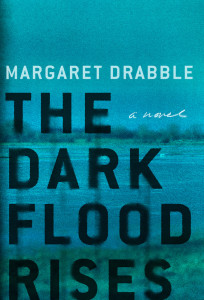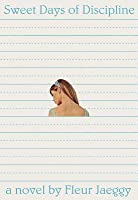
“The simplest thing would be to tear it down,” the man said. “The house is a shambles.”
Thus begins Kingsolver’s ninth novel, set in 2016. Willa Knox and her husband Iano recently inherited the house in Vineland, New Jersey from her aunt and were glad to get it. Not long before, in their fifties, they had been enjoying the rewards of lives spent building their careers and launching their children. Then the magazine Willa wrote for folded, forcing her to go freelance, and the college where Iano had tenure closed, obliging them to give up their house in Virginia.
Iano has managed to get a teaching job nearby, though it is only as an adjunct. Willa had thought they might just make a go of it, even if barely scraping by. Now it turns out that part of this house was built directly on the ground, with no foundation, and the whole thing is starting to tear itself apart: zigzagging cracks in the brickwork, leaks in the roof, ruptures in the ductwork.
It’s not just the two of them either. Iano’s bedbound father Nick, in his nineties and vociferously right-wing, lives with them, as does their daughter Tig, who has turned up after traveling from one organizing project to another since dropping out of college in 2012 to join Occupy Wall Street. Her barista income and Iano’s adjunct salary add up to a pitiful sum.
Then their daughter-in-law dies, and their grieving son leaves the newborn with Willa and Iano while he goes back to Boston to try and revive his startup. As they struggle with the Byzantine medical system and the demented gig economy, Willa and Iano still can’t get over the shock of having followed all the rules only to find themselves in this fix.
But that’s only half the story. In alternating chapters, another story plays out, set in the same block 145 years earlier. Thatcher Greenwood has reclaimed his wife’s childhood home in Vineland, a utopian community founded in the 19th century by Charles Landis. Fueled by his bombastic promises, it has grown and is now run by him as a fiefdom. Thatcher has started teaching science at a local school where his attempts to explain the new science of Darwin, John Stevens Henslow, John Herschel, etc. are stymied by the anti-science Christian principal, putting Thatcher’s job at risk.
His wife Rose and her mother are thrilled to be back in the house her father built—without the help of an architect, so it too is falling down. The two women, though, are only concerned with spending money and reclaiming their status symbols. Thatcher finds someone with a similar outlook to his in Rose’s younger sister, but all too soon the girl is imprisoned in corsets and tea parties.
It is their next-door neighbor, Mary Treat, who becomes his intellectual companion. Treat, a real person as is Landis, is a scientist investigating plants, insects and birds. She maintains a correspondence with Darwin and other scientists and is highly respected by them.
The two stories echo each other in obvious and subtle ways. Both Willa and Thatcher are struggling with a multigenerational family, a precarious income and a collapsing house.
For both of them, the house becomes a metaphor for the social turmoil of their time, when people’s assumptions and expectations about life, including their understanding of natural and economic laws, are being shaken. Demagogical leaders dupe a gullible populace with false promises. As Mary Treat says, “‘When men fear the loss of what they know, they will follow any tyrant who promises to restore the old order.’” In both timeframes, we find clashing convictions about religion, science and the natural world.
The book also looks at the ongoing tension, especially in the U.S., between self-sufficiency and interdependence. Both the widowed Mary Treat and Willa are struggling to find ways to survive financially. Nick refuses to accept government help, so Willa has to work around him to get help from Medicaid. Willa is also trying to find a government grant to restore their home, while daughter Tig befriends people in the neighborhood. Rose and her mother draw their validation from their social circle, while Thatcher is up against the community’s rejection of science in favor of a religion that gives man sovereignty over nature.
How we write about social issues in fiction is a common debate among writers and readers. Kingsolver herself has said that she tries to make issues accessible in stories that appeal to a general audience. However, a lot of readers find this book didactic and heavy-handed, even when they agree with Kingsolver’s politics and concerns. I agree that editing some of the more obvious lectures would have made this a better book, but the stories kept me reading to the end.
I appreciated the love between Iano and Willa, the way they supported each other, their tender memories, and physical encounters. There’s some of that in Thatcher and Rose’s marriage, but more interesting to me in that story was his intellectual friendship with Mary Treat.
And I loved Tig. She faces up to the climate emergency and is committed to making do. She says, “‘All the rules have changed and it’s hard to watch people keep carrying on just the same, like it’s business as usual.’” Much of her success (and the family’s) is due to her connecting to the local community, embodied in the Puerto Rican families living next door. I especially love that despite her fury at her brother’s devotion to capitalism, she is the one who is able to deal in a loving way with Nick and all his racist ravings.
Shelter is such a profound concept. There’s more to it than housing or Rose’s sheltered upbringing. All of us seek it, perhaps in faith, perhaps in science, perhaps in nationalism or our tribe. When the foundation of our society is threatened, we need to think carefully about what to tear down and what to rebuild.
Have you read any of Kingsolver’s books? What do you think about her exploration of social issues in fiction?




